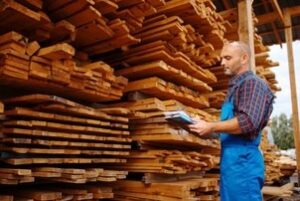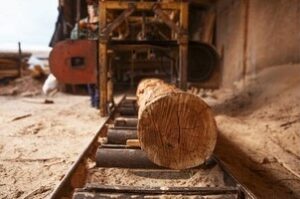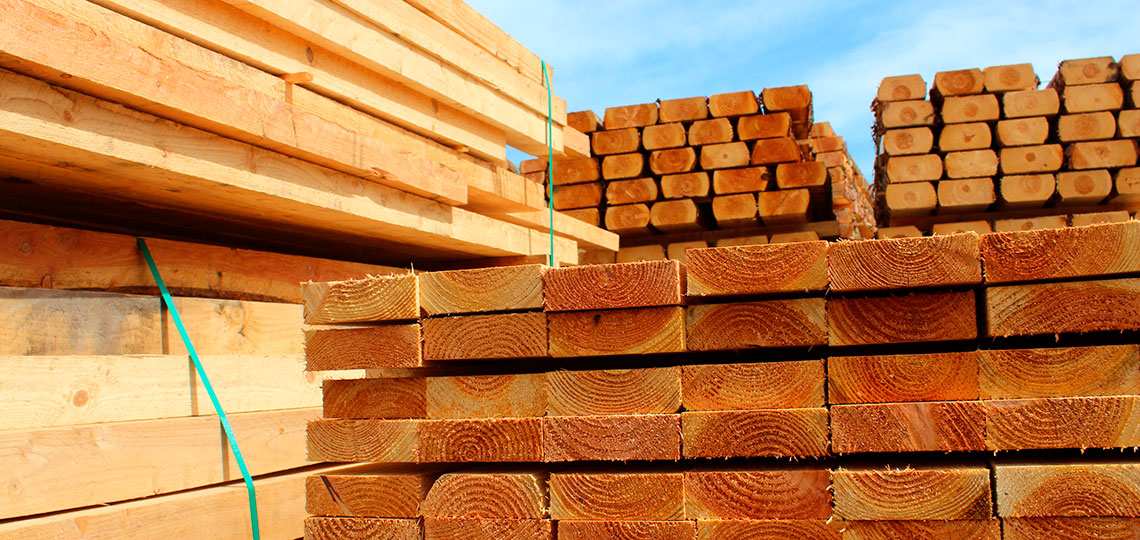Whether you’re an end-user or planning on starting your own lumber business, you would always want a quality grade timber or wood products.
If you’re planning to start your own lumber business, make sure all your timbers are stamped, graded or certified from accredited bodies. This ensures quality that will build customer confidence and loyalty.
Here, we’re going to guide you on various critical things you need to follow and comply in order to get that lumber certified and stamped.
What’s a lumber or timber certification?
- It is a written document which attests the origin of the wood products and/or the standard qualifications to be met. This certification is carried out by independent third parties.
- This is also used to measure the forest management practices of timber manufacturers if they comply with the standards imposed by the government.
- It’s also used to validate any environmental and product claims by the manufacturer.
- It’s composed of two main parts:
- Certification of sustainability of forest management: This part includes forest inventory, management planning, silviculture, harvesting, road construction and related activities.
- Product certification: This covers the supply chain of domestic and export markets.
What’s the importance of having graded or certified lumber?
Well, if you’re just planning on selling lumbers on your backyard then a certification won’t be necessary. However, for business expansion and competitive advantage, having your lumbers or timbers certified and stamped gives more quality assurance for the customers. Likewise, you’d be eligible to sell to other places and expand your market.
What are the two well-known forest certifications for the lumber industry?
Sustainability has always been the core concept for most industries, particularly with the timber or lumber industry. In order to help conserve nature, consumers are moved to source wood products derived from forests which are well-managed for sustainability.

Among the 50 certification programs, the two well-known certifications are Forest Stewardship Council (FSC) and Program for the Endorsement of Forest Certification (PEFC).
Forest Stewardship Council (FSC)
They have ten standards for responsible forest management. This has become the golden standard in forest certification which is supported by WWF, Sierra Club, Greenpeace, Natural Resources Defense Council and National Wildlife Federation.
What are its advantages?
- Credibility: It is an independent member-led group composed of three equal authority chambers (social, environmental and economic chambers).
- Environmental Protection: Their forest management standards have a wide coverage such as water quality, prohibition of harvesting rare old-growth forest, avoid loss of natural forest cover and the use of toxic chemicals.
- Community Engagement: This group mandates both public and private forest land managers to immerse in local community members and protect the rights of indigenous people.
Click here to know more about FSC certification and how to apply for it.
Click here to know the different FSC-accredited Certifiers in the United States.
Program for the Endorsement of Forest Certification (PEFC)
This is a certification program of choice for small, non-industrial and private forests. In order to provide great assurance that all wood-based products came from well-managed forests, this organization offers the Chain of Custody certification. This certification delineates the requirements for effectively tracking wood materials from the forest until it becomes the final product to ensure its wood raw materials came from PEFC certified forests.
Click here to know more about PEFC certifications and how to apply for it.
Click here to verify certifications, logo, label users, products, accreditation certification bodies, and PEFC-endorsed national certification schemes.
Click here to find PEFC-accredited certifying bodies.
What’s a lumber standard committee?
It is an organization composed of manufacturers, distributors, and customers for wood products in a certain geographical area. This group works on the grade marking of all lumbers or timbers under its system in order to maintain quality. Likewise, it evaluates the acceptance or rejection of all lumbers in accordance with the building codes of certain states or countries.
FSC vs. SFI: Understanding Eco-Certification Standards, click to read more.
What are some of the lumber standard committees in the industry?
There are several lumber committees which are mostly specific to a state or country. It actually depends where you are located to determine what lumber committee should you join.
Three of the major lumber standard organizations include the American Lumber Standard Committee Incorporated (ALSC), Standard Australia Timber Committees, and Canadian Lumber Standards Accreditation Board.
American Lumber Standard Committee Incorporated (ALSC)
This is a non-profit group incorporated in the State of Maryland. It is composed of manufacturers, distributors and customers of wood products. This group conducts the grade marking of all wood-related products under their organization. As part of its role, it maintains the American Softwood Lumber Standards.

This organization helps the members in the formulation and implementation of the standards for softwood lumbers. They are also in accordance with the Procedures for the Development of Voluntary Product Standards of the United States Department of Commerce. The purpose of the Voluntary Product Standards is to create a product specification which nationally recognized and to facilitate all interests regarding a common understanding of the said product.
The ALSC administers the following accreditation programs:
- Quality marking for lumbers produced in accordance with the American Wood Protection Association (AWPA)
- Proper labelling of wood packaging materials in accordance with the International Plant Protection Convention (IPPC) Guidelines for Regulating Wood Packaging Material in International Trade.
- Quality marking for residential or commercial densified fuel pellets in accordance with the Pellet Fuels Institute (PFI)
Standard Australia Timber Committees
This organization works with various standards which important to the industry. They have established several professional and ethical standards for the stakeholders Wood Products of Australia Limited. These standards aim to promote the quality grading of lumber-related products and ensure its raw materials came from forests that are sustainably managed by the agencies.
To know more about the group, please click on the lists below:
- Current works of the organization
- Promoting Wood:
- Board Charter and Policies
- TM-011: Engineered Timber Product Standards
Canadian Lumber Standards Accreditation Board (CLSAB)
This is the official organization which conducts quality checking for Canada’s lumber grading and identification system. Its previous name was Canadian Lumber Standards (CLS) Committee. The CLS committee started its operation from April 1960 to October 1962 before it is replaced by the Canadian Lumber Standards Administration Board.
The four main functions of the group:
- To control, identify, and certify lumbers
- To accredit and supervise lumber grading agencies
- To review and approve grading rules and product standards related to grading agencies
- To promote the acceptance of the Canadian lumber grading system in the international market
The CLSAB’s system has a wide coverage which includes the following:
- Graders’ training and supervision
- Consensus-based grading rules, product standards and regulations
- Responsibilities in handling contracts
- To review CLSAB Accredited Agencies’ mill grading and operations
- To review the performances of the CLSAB’s accredited agencies
CLSAB Accredited Agencies
- Alberta Forest Products Association
- Canadian Mill Services Association
- Canadian Softwood Inspection Agency
- Central Forest Products Association
- Council of Forest Industries
- Maritime Lumber Bureau
- Newfoundland and Labrador Lumber Producers’ Association
- OFIA Home of CLA Grading and Inspection
- Ontario Lumber Manufacturers’ Agency
- Pacific Lumber Inspection Bureau
- Quebec Forest Industry Council
Need More?
For further inquiries, comments, or suggestions, please feel free to contact us at any time.
If you need any assistance regarding your lumber certification or want to start your own small lumber business, you can contact as well.

